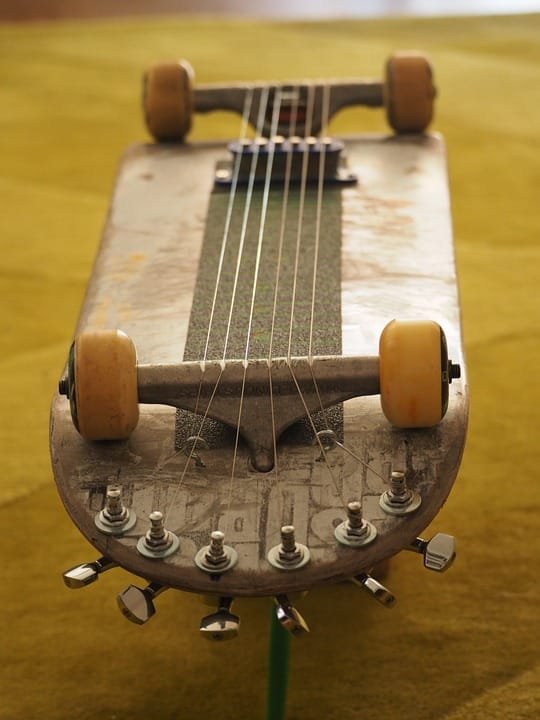The Ultimate Wardrobe Detox: Get Rid of the Guilt, Keep the Style
As I stood in front of my overflowing closet, overwhelmed by the sheer amount of clothes that seemed to hold memories and emotions, I knew it was time for a change. I had indulged in the convenience of fast fashion, never thought twice about the consequences, and now I was paying the price – both financially and environmentally. The quest for sustainability began, and I’m thrilled to share my journey with you, filled with eco-friendly brands, thrift shopping, DIY projects, and simple swaps that can make a difference. Let’s dive into the world of sustainable fashion and explore the impact of our consumption habits.
The Dark Side of Fast Fashion
Fast fashion, the phenomenon of producing and discarding clothes at an alarming rate, has become the norm. We’ve become accustomed to buying cheap, trendy clothing, with 12.8 million tons of textile waste generated globally each year (World Wildlife Fund). The environmental and social costs are staggering:
- 85% of garments end up in landfills or incinerators (Ellen MacArthur Foundation)
- 120,000 tons of microplastics are released from synthetic fabrics annually (Scientific Reports)
- The fast fashion industry contributes to 10% of global greenhouse gas emissions, equivalent to the output from 170 coal-fired power plants (UNEP)
Enter Sustainable Fashion: The Alternative
Sustainable fashion is not about sacrificing style for substance; it’s about making a conscious choice to reduce our environmental footprint and promote fair labor practices. Here are key elements to adopt:
- Eco-friendly materials: Choose clothing made from sustainable fabrics like organic cotton, recycled polyester, or repurposed materials.
- Slow fashion: Limit fast fashion’s pace by prioritizing timeless, well-made pieces and swapping or mending instead of discarding.
- Upcycling: Transform old or discarded clothes into unique, one-of-a-kind pieces, reducing waste and promoting creativity.
Brand Superstars of Sustainability
Join the movement by supporting brands that prioritize environmental responsibility and social justice:
- Patagonia, known for their environmental activism and commitment to using recycled and organic materials
- Reformation, a fast-fashion pioneer turned sustainable, using environmentally-friendly materials and reducing waste
- H&M Conscious, a sustainable denim line, aims to recycle 100% of garments by 2030
Thrift Shopping: The Treasure Hunt
Unleash your inner fashion detective at local thrift stores or online marketplaces like eBay, Poshmark, or Depop. You’ll discover:
- Unique, one-of-a-kind pieces that reduce waste and encourage creativity
- Affordable prices, often under $10, for gently used or second-hand items
- The thrill of the hunt, as you uncover hidden gems and make sustainable fashion a fun, exciting experience
DIY Delights: Upcycle Your Way to Sustainability
Transform old clothes into new, eco-friendly pieces:
- Turn an old hoodie into a reusable tote bag
- Upcycle ripped jeans into a funky planter or a one-of-a-kind scarf
- Repurpose an old sheet into a reusable produce bag or a stylish throw pillow
Simple Swaps for a Sustainably-driven Wardrobe
- Swap fast fashion for sustainable brands
- Replace single-use plastics with reusable bags, containers, and accessories
- Opt for timeless, well-made pieces over trendy, disposable ones
Conclusion: The Power is Yours
Embracing sustainable fashion is a journey, not a destination. By incorporating eco-friendly practices, supporting environmentally responsible brands, and upcycling, you’ll join a community of conscious consumers committed to a better future. Remember, sustainable fashion is not just about clothing; it’s about living with purpose and compassion.
Frequently Asked Questions (FAQs)
Q: How do I start my sustainable fashion journey?
A: Begin by researching eco-friendly brands, thrift shopping, and upcycling techniques.
Q: What are some sustainable fabrics to look for?
A: Opt for organic cotton, recycled polyester, or repurposed materials.
Q: How can I extend the life of my clothes?
A: Mend, don’t discard, and regularly clean and dry your clothes to prolong their lifespan.
Join the sustainable fashion movement and let’s create a brighter, greener, and more stylish future – together!








Leave a Reply